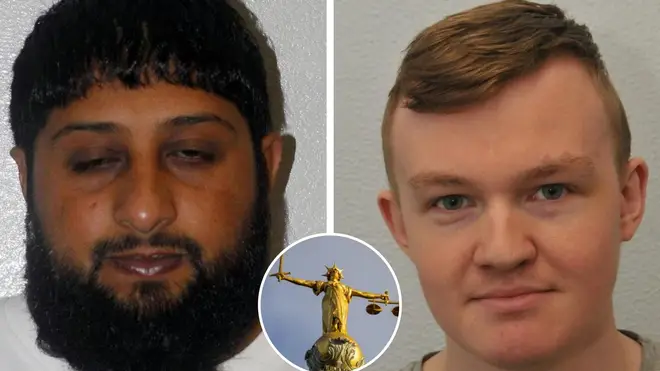
Matthew Wright 7am - 10am
30 December 2021, 07:37

The Parole Board is considering the release of nearly 100 terrorists, including a man who plotted alongside the London Bridge attacker and another who made a pipe bomb.
Several of the 92 active and ongoing terror cases could be brought before parole judges next year.
It comes after the Government passed laws to stop the automatic early release of terrorists from prison, forcing them to serve two-thirds of their initial jail term before they can be considered for release. Previously, they would need to serve half.
The move was triggered after extremists who had been let out of prison carried out two attacks in three months.
Cases under review include Nazam Hussain, who planned attacks alongside Usman Khan, the terrorist who killed two people at a criminal rehabilitation conference during the London Bridge assault in 2019.
Read more: Streatham attacker signalled he wanted to 'kill the Queen' before prison release
Read more: More than 160 terror prisoners freed early in last seven years
Jack Coulson, who made a pipe bomb in his bedroom, which was filled with Nazi memorabilia, and downloaded a terror guide, is also up for release. Hussain and Coulson could both have their cases reviewed in February.
Rangzieb Ahmed could have his chance to leave jail reviewed in March. He was the first person convicted of directing terrorism in the UK after he led a three-man Al Qaida cell which was preparing for mass murder.
Jawad Akbar, one of five terrorists who planned to bomb the Bluewater shopping centre in Kent and London's Ministry of Sound nightclub in 2004, could get his case heard in March, too.
And Abdalraouf Abdallah, who Salman Abedi visited in prison before the Manchester Arena attack – and has denied any involvement in that – could be considered for release in the first half of 2022.
The Islamic extremist was recalled to prison for breaching his licence conditions earlier in 2021.
Aras Hamid, who attempted to leave the UK and join Isis, is likely to have his case considered in the next six months too.
The Parole Board has had 117 cases referred to it since the changes to terrorists’ early release were brought in. Eleven were freed and 14 have been refused release.
Terror cases can take more time to complete, with the intelligence services getting involved and panels needing high level security clearance to hear key evidence.
A Parole Board spokesman said: "Public protection is always our top priority. Any terrorist convicted offender released into the community will be subject to some of the strictest licence conditions available, including restrictions of where they can go, who they can associate with, restrictions on internet use, electronic devices, travel and work.
"They will also be subject to further close monitoring as part of Multi Agency Public Protection Arrangements (Mappa)."